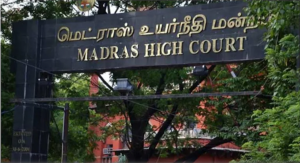 The High Court of Madras in the case of Pinstar Automotive India Pvt. Ltd. vs Additional Commissioner in W.P.No.8493 of 2023 And WMP No.8686 of 2023 dated 20.03.2023, has set aside the order of the department on the ground that there has been no opportunity granted to the petitioner prior to the passing of impugned order and this is a fatal flaw. Also, the court has called for setting up a mechanism to ensure that the purchaser gets input tax credit benefits as long as GST is recovered from the supplier. Also, the court has suggested a remedy against the unjust enrichment of the government and has restricted its opinion to the limited issue of restoring ITC benefits to the purchaser. The revenue department should use its powers to reverse ITC benefits to a purchaser only as a protective measure.
The High Court of Madras in the case of Pinstar Automotive India Pvt. Ltd. vs Additional Commissioner in W.P.No.8493 of 2023 And WMP No.8686 of 2023 dated 20.03.2023, has set aside the order of the department on the ground that there has been no opportunity granted to the petitioner prior to the passing of impugned order and this is a fatal flaw. Also, the court has called for setting up a mechanism to ensure that the purchaser gets input tax credit benefits as long as GST is recovered from the supplier. Also, the court has suggested a remedy against the unjust enrichment of the government and has restricted its opinion to the limited issue of restoring ITC benefits to the purchaser. The revenue department should use its powers to reverse ITC benefits to a purchaser only as a protective measure.
Facts of the case:
- The petitioner had received pre-assessment notice dated 17.09.2021 in regard to the issue relating to invocation of Section 16(2)(c) of the Act.
- The petitioner has received certain supplies from its suppliers for which they have made entire amount of payment including tax thereon to the suppliers.
- The respondent department issue show cause notice on the petitioner for reversal of ITC claimed by them, for a reason that the suppliers of the petitioner had not remitted the tax to the government. Therefore, as a consequence the petitioner suffered reversal of Input tax credit (ITC).
- The stand of the petitioner that ‘they had fulfilled all the conditions for taking the Input Tax Credit and also provided proofs that the payment to the suppliers has been made by them within a period of 180 days, and therefore they are eligible to claim input tax credit’, was rejected by the respondent.
- The petitioner preferred to seek rectification of Order-in-original dated 29.07.2022.
Submission of the petitioner: The petitioner submitted that the application for ‘rectification of mistakes’ was disposed of ex-parte. The assessment order was passed without considering or referring to certain decisions or case laws while dealing with the dispute relating to the availability of ITC. Also, no opportunity of being heard was granted prior to disposal of their application.
Held:
In the present case, the Hon’ble Court addressed the curious situation under the GST law, that the double benefit to the GST department needs a solution. Here, the double benefit means that situation where the revenue department gets taxes not just from the supplier but also from the purchaser.
- The High Court noted that currently there is no mechanism that makes sure that ITC benefits are restored to the purchaser once tax is recovered from the seller. Therefore, a mechanism needs to be put in place to ensure that the purchaser gets ITC benefits when the GST has been recovered from the supplier.
- Further, the Revenue department should use its power to reverse ITC benefits of a purchaser only as a protective measure. Thus, the primary and substative liability falls on the supplier and the liability of the purchaser should be protective one only.
- Lastly, the court finds that the procedure followed by the authority is clearly contrary to the third proviso to Section 16 of the Act that necessitates that, where the authority proposes to take a view adverse to the applicant, due process must be followed.
The High Court quashed the assessment order passed by the department, being in violation of principles of natural justice. Hence, the authority was directed to pass fresh order thereon after issuing notice and thereafter, hearing them.
For more Judgments like this, Subscribe TAXO today


